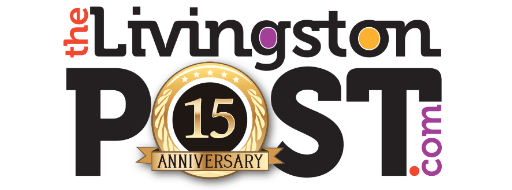 It’s hard to believe that “Huckleberry Finn,” Mark Twain’s masterpiece, was once banned for its crude language.
It’s hard to believe that “Huckleberry Finn,” Mark Twain’s masterpiece, was once banned for its crude language.
The book, Twain’s follow-up to “Tom Sawyer” that one critic way back when called “cunningly subversive,” has its rightful place in American literature history.
But it caused quite the stir when it was first published in 1884, and it’s important to remember that it was banned. This great American classic was deemed unreadabe by people with the power to remove it from public view and library shelves.
That’s power no one should have.
You can read about the banning of “Huckleberry Finn” in an article from Time Magazine on banned books by clicking here.
As we get ready to once again celebrate Banned Books Week, we must acknowledge the bannings of the past, as well as keeping vigilant about the more subtle attempts at censorship all around us today. Just a couple weeks ago, the news was filled with the Florida pastor who wanted to burn the Koran. A couple years ago, right here in Livingston County, two amazing books, “Black Boy” by Richard Wright and “The Bluest Eye” by Toni Morrison came under fire by LOVE (Livingston Organization for Values in Education) for appearing on a Howell High School reading list. (Note to self: Find out where that goofy LOVE group is today.)
Why is literature, especially controversial works, so important and worthy of our protection?
It’s all about building empathy. Only by understanding each other — by feeling someone else’s pain — can we ever hope to move forward.
As a white woman, I don’t know what it’s like to be a black man, but I get a glimpse into it by reading “Black Boy.” I can identify with Pecola’s desire for blue eyes in “The Bluest Eye” after reading Morrison’s masterpiece. I’ve traveled to countries I’ll never visit in real life. I’ve learned from characters sprung from the imaginations of writers like me. I’ve laughed and cried and raged and learned because brave writers breathed life into stories of courage and perserverance and love.
That anyone would deny someone else the chance to learn and grow from the works of others is beyond my comprehension, yet that’s what people try to do every day of the week.
That’s why Banned Books Week is so important.
Certainly, not all books are appropriate for all people at all ages. But the books that have come under fire by community groups in our schools are precisely the kind of books that should be read.
The books that caused all the huffing and puffing in Howell are monumental works that address violence against people too young, too weak, too vulnerable to take care of themselves.
These books teach us how it feels to be powerless. This is a great lesson we all need to learn in these treacherous times.
Violence, especially in the home and against young children, is the root of most of what ails us as a community. It destroys our senses of self and worth; its nasty legacy stretches from generation to generation, bound by ties that are always tight and always difficult to break.
We must feel the pain of others, to understand and empathize, if ever we are to break the cycle.
It is easy to dismiss those we know nothing about. It really and truly is harder to do so after we’ve walked a mile in someone else’s shoes and come to understand them. In this day and age, when everyone’s reaching for the power ring at the expense of others, that lesson is much too valuable and much too essential to push aside.
Reasonable people can disagree on most anything, including what material is appropriate for others — especially kids — to read. Disagreement and ensuing debate works like water against rock, knocking the hard edges off policies and laws, smoothing over hard feelings, ensuring all viewpoints are heard and all ideas are considered. This is what makes our country great.
And this is why Banned Books Week is so important. That’s why books belong on the shelves of our homes, libraries and schools, not on burning piles: We won’t all choose to read those books, but at least we have the choice.
Isn’t that what being an American is all about?
